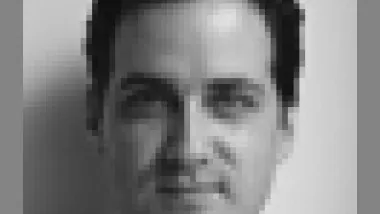From the Philadelphia Inquirer "Dream isn't deleted yet. What happens when you take Mayor Street's trailblazing vision of Philadelphia as one huge wireless Internet hot spot and suddenly cool it to the temperature of long-dead star? The vision dies, and with it a shining chance to showcase the city as hip and technology-friendly. Also shot would be the chance to redefine the "City of Brotherly Love" as a community that reaches across the digital computer divide. The vision doesn't die, though, if enough people start chanting - Neverland-style - that they believe... they believe... they believe."
From the Philadelphia Inquirer
"Dream isn't deleted yet. What happens when you take Mayor Street's trailblazing vision of Philadelphia as one huge wireless Internet hot spot and suddenly cool it to the temperature of long-dead star? The vision dies, and with it a shining chance to showcase the city as hip and technology-friendly.
Also shot would be the chance to redefine the "City of Brotherly Love" as a community that reaches across the digital computer divide. The vision doesn't die, though, if enough people start chanting - Neverland-style - that they believe... they believe... they believe."
The issue i'm having with the extensive wireless coverage in Philadelphia of late is how 'partisan' it appears to be at this time. People are either for it, or against it and there is little discussion as to what it will truly be used for. I'm of the mind that the larger objectives are worthy of pursuit but a heavy handed approach may not be warranted. Philadelphia, like most cities, is comprised of a diverse collection of communities. Satisfying their individual and unique needs through one technology seems limiting. Should there not be a broader set of policy objectives to guide a long-term approach to integrating information technologies into the city? Would it not be better to allocate the budgeted dollars toward a series of community grants that neighborhoods can use to meet their needs based on a local planning process? Unfortunetly, the discussion to date has only scratched the surface of the potential opportunities available for technology initiatives.

Analysis: Cybertruck Fatality Rate Far Exceeds That of Ford Pinto
The Tesla Cybertruck was recalled seven times last year.

National Parks Layoffs Will Cause Communities to Lose Billions
Thousands of essential park workers were laid off this week, just before the busy spring break season.

Retro-silient?: America’s First “Eco-burb,” The Woodlands Turns 50
A master-planned community north of Houston offers lessons on green infrastructure and resilient design, but falls short of its founder’s lofty affordability and walkability goals.

Test News Post 1
This is a summary

Analysis: Cybertruck Fatality Rate Far Exceeds That of Ford Pinto
The Tesla Cybertruck was recalled seven times last year.

Test News Headline 46
Test for the image on the front page.
Urban Design for Planners 1: Software Tools
This six-course series explores essential urban design concepts using open source software and equips planners with the tools they need to participate fully in the urban design process.
Planning for Universal Design
Learn the tools for implementing Universal Design in planning regulations.
EMC Planning Group, Inc.
Planetizen
Planetizen
Mpact (formerly Rail~Volution)
Great Falls Development Authority, Inc.
HUDs Office of Policy Development and Research
NYU Wagner Graduate School of Public Service


























